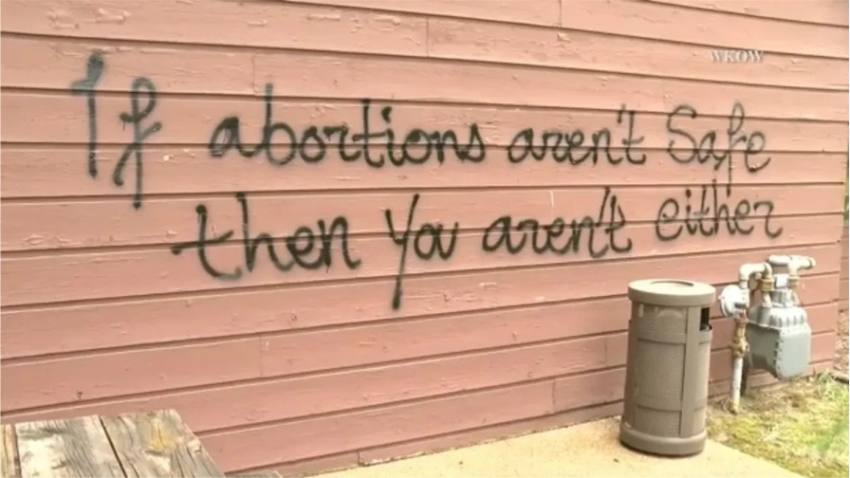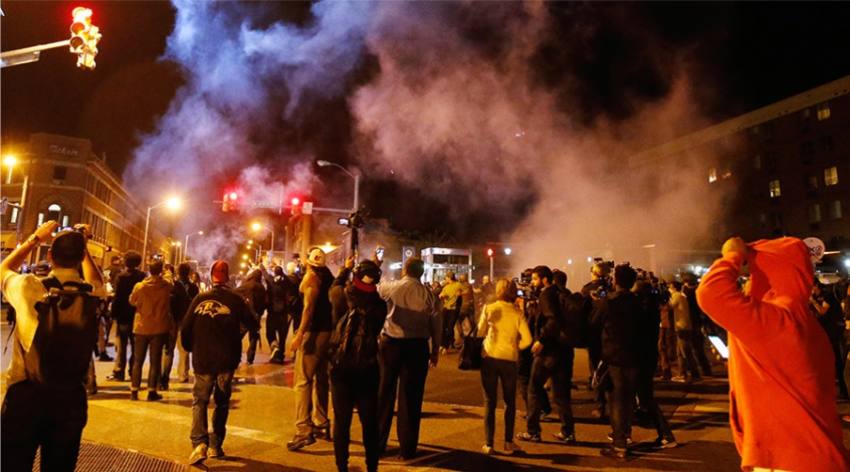You should check to see if you still have a pulse if you are not worried about what is happening to our greatest cities. The gorgeous new cities our forefathers built were once the envy of the world, but many of them have now deteriorated into crime-ridden wasteland absolutely alive with vicious predators.
Shoplifting has virtually become a national pastime, open-air drug marketplaces operate openly right in front of unconcerned law enforcement, and addicts are allowed to take a dump whenever and wherever they choose. Gang membership is clearly skyrocketing, and human trafficking has reached very alarming levels as a result of record numbers of illegal immigration.
Of course, at this time, our dwindling police force is overburdened. In Seattle, the police force is so overburdened that they frequently are unable “to take reports from rape victims.” And good luck ever getting a police officer in Seattle to pay attention to your case if you are the victim of a non-violent crime.
Communities are slipping into complete lawlessness from coast to coast. If conditions are this horrible now, what will they be like when things truly start to become bad?
Crime rates across the country are steadily increasing, continuing a pattern that has been seen for the past few years.
For instance, New York City has seen a more than 50% increase in transit crime, grand larceny, and auto theft so far this year.
Grand larceny auto jumped by 51.1 percent, from 3,587 incidents by the same day in 2021 to 5,420 incidents as of June 5, according to data made public by the New York City Police Department.
The most current report on crime statistics, which covered May 30 to June 5, showed that category experienced one of the biggest increases. Grand theft incidents increased by 50.1 percent from 13,713 instances reported during the same period previous year to 20,659 crimes reported to the NYPD as of June 5.
Meanwhile, overall transport crime has increased this year by 53.6 percent.
I believed the new mayor was chosen to put an end to the crime epidemic.
Instead, it seems to have grown larger.
Decriminalizing acts that were once considered serious violations is one approach to conceal the sharp increase in crime.
When hard narcotics were decriminalized in Portland, voters only created a “open air drug market” there.
After state officials’ plan to legalize hard narcotics allegedly resulted in an increase in overdose deaths, critics assert that Portland’s streets now resemble a “open air drug market.”
According to law enforcement officials, Portland’s streets are crowded with homeless drug users who are openly purchasing and selling drugs, and the prevalence of drug abuse is rising overall, Fox News said.
Pictures document the dire state of affairs in the liberal Pacific Northwest metropolis, where people may be seen doping or passing out in the open.
Portland used to be one of the most beautiful cities in the entire globe.
It’s now a horror show.
We are currently observing a very worrying increase in politically motivated violence on top of all the regular criminality that is occurring.
This month is expected to see the announcement of the Supreme Court ruling that will overturn Roe v. Wade, and “Jane’s Revenge” has declared that it is “open season” against everyone who support life.
 The organization has a history of causing property damage during their protests, and earlier this month they claimed responsibility for the vandalism of a pregnancy aid facility in Des Moines, Iowa. The gang claimed in a message shared on social media that they vandalized the clinic’s glass and left political graffiti all over it. The message said, “It was simple and enjoyable.”
The organization has a history of causing property damage during their protests, and earlier this month they claimed responsibility for the vandalism of a pregnancy aid facility in Des Moines, Iowa. The gang claimed in a message shared on social media that they vandalized the clinic’s glass and left political graffiti all over it. The message said, “It was simple and enjoyable.”
Sadly, there has already been a lot of violence despite the fact that the official Supreme Court ruling has not even been made public.
More than 35 attacks on pro-life organizations, places of worship, and crisis pregnancy centers have reportedly occurred in recent weeks, according to reports.
Since a draft Supreme Court opinion overturning Roe v. Wade was leaked last month, pro-life organizations and government officials have been the target of a wave of violence, arson, vandalism, and intimidation. Last week, an armed would-be assassin allegedly tried to kill Supreme Court Justice Brett Kavanaugh.
According to a count kept by the anti-abortion website LifeNews.com, there have been more than 30 such incidents targeted at churches and crisis pregnancy centers in at least 20 states and Washington, D.C.
Our streets are rapidly losing the thin veneer of civility that we all take for granted on a daily basis, and they are growing more uncivilized as time goes on.
What will happen once things start to go truly crazy out there if this is happening while economic conditions are still largely stable?

The food crisis has already reached critical levels in several regions of the world. For instance, the Sri Lankan government has actually shortened the workweek to give employees more time to cultivate their own food.
According to Reuters, Sri Lanka’s federal government approved a plan on Monday that would reduce the majority of public sector employees’ workweeks to four days in order to give employees more time to cultivate their own crops. The move is intended to address the country’s worsening food shortages, which are the result of a recent economic crisis.
Reuters reported on June 14 that “Sri Lanka’s Cabinet late on Monday accepted a plan for public sector employees to be given leave every Friday for the following three months, in part because the gasoline crisis made traveling difficult and also to encourage people to farm.”
According to Reuters, Sri Lanka’s federal government approved a plan on Monday that would reduce the majority of public sector employees’ workweeks to four days in order to give employees more time to cultivate their own crops. The move is intended to address the country’s worsening food shortages, which are the result of a recent economic crisis.
Reuters reported on June 14 that “Sri Lanka’s Cabinet late on Monday accepted a plan for public sector employees to be given leave every Friday for the following three months, in part because the gasoline crisis made traveling difficult and also to encourage people to farm.”
Because they just do not have enough money to feed the quickly expanding throngs of terribly hungry people, the United Nations has stopped feeding the roughly 1.7 million South Sudanese nationals there in Africa.
Due to a lack of financing, the World Food Programme was obliged to suspend distributing food to about 1.7 million people in South Sudan. 4.5 million people will still be reached by the UN-run organization, but many will be deprived of essential supplies.
Due to a lack of financing, the World Food Programme was obliged to suspend distributing food to about 1.7 million people in South Sudan. 4.5 million people will still be reached by the UN-run organization, but many will be deprived of essential supplies.
According to BBC News, due to flooding, localized drought, ongoing violence, and rising food prices, more than half of South Sudan’s population is currently going hungry. Marwa Awad, a representative of the World Food Programme, has been discussing the effects of aid cuts with locals in the South Sudanese town of Bentiu in the country’s north.
All of the experts are telling us … >>> Continue
By Michael Snyder (Rephrased for InfoArmed)
